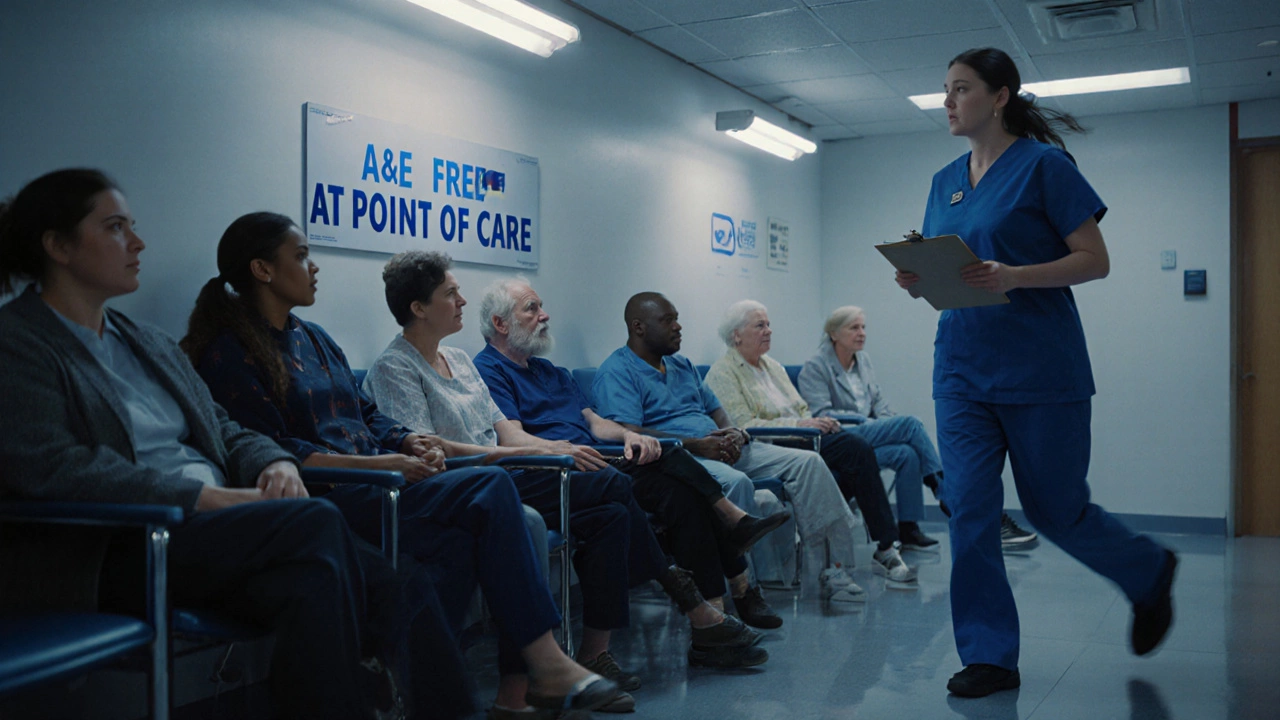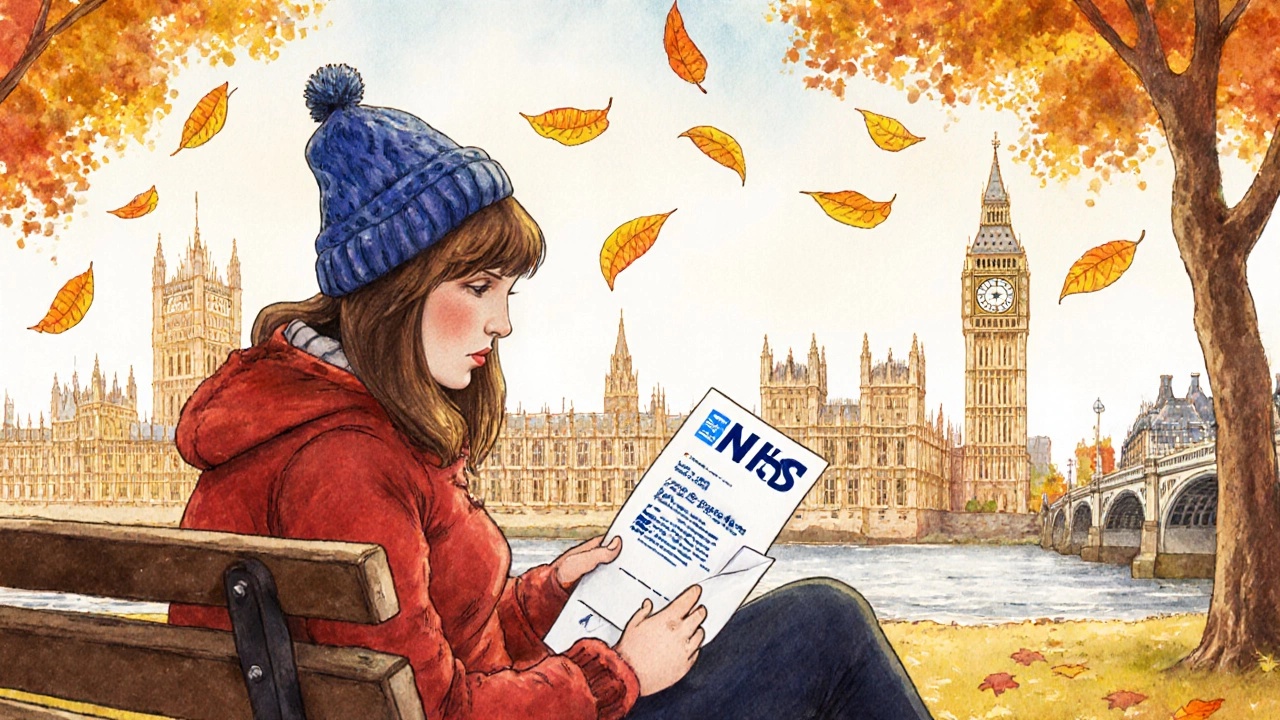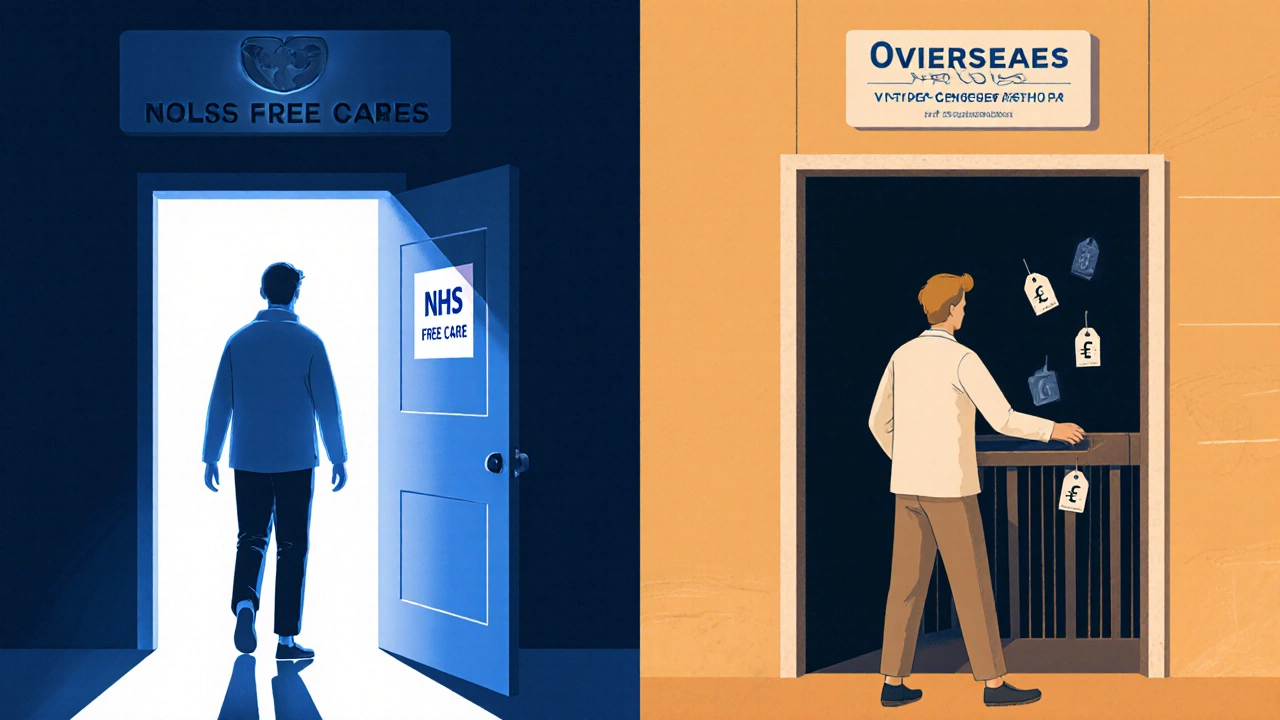
UK Hospital Cost Calculator
Calculate Your UK Hospital Costs
Estimated Cost: £0.00
When you’re sick or injured, the last thing you want to worry about is how much it’ll cost to get help. In the UK, the answer is simple for most people: you don’t pay at the point of care - not for emergency visits, not for hospital stays, not for surgery. But there are exceptions, and knowing them can save you stress - and money - if you’re not a UK resident.
How the NHS works: Free at the point of use
The National Health Service (NHS) is built on one core idea: healthcare should be free when you need it. That means if you walk into an A&E department after a car accident, get admitted for pneumonia, or need an emergency appendectomy, you won’t be handed a bill before treatment starts. This applies to everyone who is legally resident in the UK - whether you’re a British citizen, a permanent resident, or someone with a valid visa that grants access to public funds.It’s not just emergencies. If you’re referred to a specialist, need an MRI scan, or have to stay in hospital for weeks, the NHS covers it all. No co-pays. No deductibles. No surprise invoices. The system is funded through general taxation, not insurance premiums.
Who actually pays for hospital care in the UK?
Not everyone gets free care. If you’re visiting the UK from abroad - say, on a tourist visa, a short-term work assignment, or as an international student without a long-term visa - you might be charged. The NHS charges overseas visitors for most hospital treatments, unless they’re for conditions that are immediately life-threatening or require urgent care under international agreements.For example, if you’re from the U.S. and break your leg while hiking in the Lake District, you’ll get treated in A&E right away - but you’ll receive a bill later. The same goes for non-emergency care like a knee replacement or a course of chemotherapy. The cost? It can run into thousands of pounds. A single night in hospital can cost £500-£1,000 depending on the treatment. A hip replacement? Around £12,000.
There are exceptions. People from countries with reciprocal healthcare agreements - like those in the European Economic Area (EEA), Australia, New Zealand, and some others - may get free or reduced-cost care if they have a valid European Health Insurance Card (EHIC) or Global Health Insurance Card (GHIC). But even then, only emergency and necessary treatment is covered.
What about prescriptions and dental care?
Free hospital care doesn’t mean everything is free. Prescription charges still apply in England - £9.90 per item as of 2025. That’s not the case in Scotland, Wales, or Northern Ireland, where prescriptions are free for everyone. If you’re on a low income, have a long-term condition, or are over 60, you can apply for an exemption card to avoid paying.Dental care is another area where you pay out-of-pocket. A basic NHS dental check-up costs £26.80 in England. Fillings run £73.50, and crowns can hit £319.10. Again, exemptions exist for children, pregnant women, and people on certain benefits. But if you’re not eligible, you’re paying.

Private hospitals in the UK: What’s the difference?
There are also private hospitals in the UK - places like BMI Healthcare, Spire Healthcare, or Nuffield Health. These aren’t part of the NHS. If you go to one, you’ll pay directly. Many people use private care if they want faster access, a private room, or a specific consultant. But you need either private health insurance or cash to cover it.Some people have private insurance through their employer. Others buy it themselves. A basic policy might cost £1,000-£2,000 a year. It won’t cover emergencies - you’d still go to the NHS for those - but it can speed up treatment for things like cataract surgery or back pain.
What if you can’t pay? Can you be turned away?
No. Under UK law, no one can be refused emergency or immediately necessary treatment because they can’t pay. That includes undocumented migrants, asylum seekers, and tourists. The hospital will treat you first, then send you a bill later. If you can’t pay, you can apply for financial assistance or set up a payment plan. The NHS has a system to help people who are struggling - but you have to ask.However, if you ignore the bill, it can be sent to a collections agency. For non-emergency care, you might be blocked from future NHS services if you’ve got unpaid charges - though this rarely happens for emergencies.
What about mental health services?
Counselling, therapy, and psychiatric care are covered by the NHS - and free. You can be referred by your GP, or in many areas, you can self-refer to talking therapies. Wait times can be long, but the care itself doesn’t cost you anything. Crisis teams are available 24/7. If you’re in acute distress, you can walk into A&E and ask for mental health support - they’ll connect you with the right team.
Real-life example: A tourist in London
Imagine you’re from Canada, visiting London for two weeks. You fall and twist your ankle badly. You go to the nearest A&E. You’re seen within 30 minutes, get an X-ray, and are given crutches and painkillers. You’re discharged the same day. No bill at the time. But two months later, you get a letter: £1,200 for the emergency treatment and scan. You didn’t know you were being charged. You pay it. Or you don’t - and risk being flagged in the system if you return to the UK.What should visitors do?
If you’re planning to travel to the UK, get travel insurance that includes medical coverage. Most good policies cover hospital stays, emergency transport, and even repatriation. Don’t assume your home insurance or credit card coverage is enough. Check the fine print - some only cover up to £5,000, which won’t cover a serious injury.For long-term residents - expats, students, workers - make sure your visa allows access to the NHS. If you’re on a short-term visa, you’ll likely need to pay the Immigration Health Surcharge (IHS) when you apply. That’s £1,035 per year (as of 2025) for most visas. Paying the IHS gives you full access to NHS services, just like a UK resident.
Bottom line: It’s free - if you’re eligible
For the 67 million people living legally in the UK, hospital care is free. No hidden fees. No surprise bills. No insurance forms to fill out at the door. That’s the NHS promise.For everyone else - tourists, short-term visitors, some international students - it’s not. You’ll be charged, sometimes heavily. The key is knowing your status before you walk through the doors. If you’re unsure, ask at the reception desk. They’re required to tell you if you’re eligible for free care.
Don’t let fear of cost stop you from seeking help if you’re in pain or danger. The UK system is designed to save lives first, and sort out bills later.